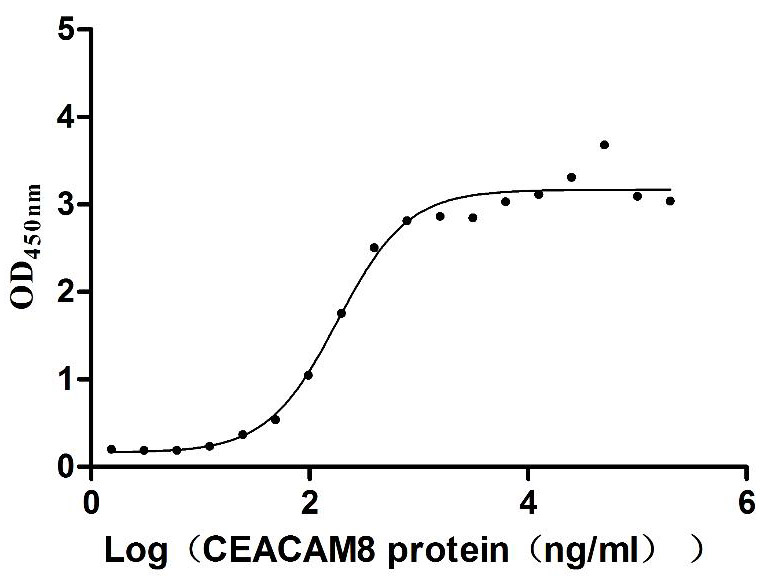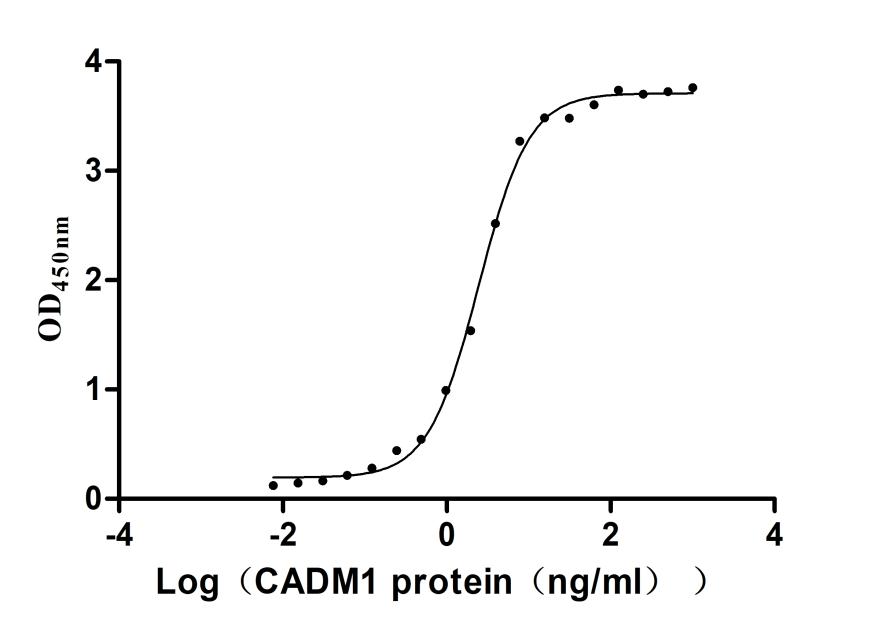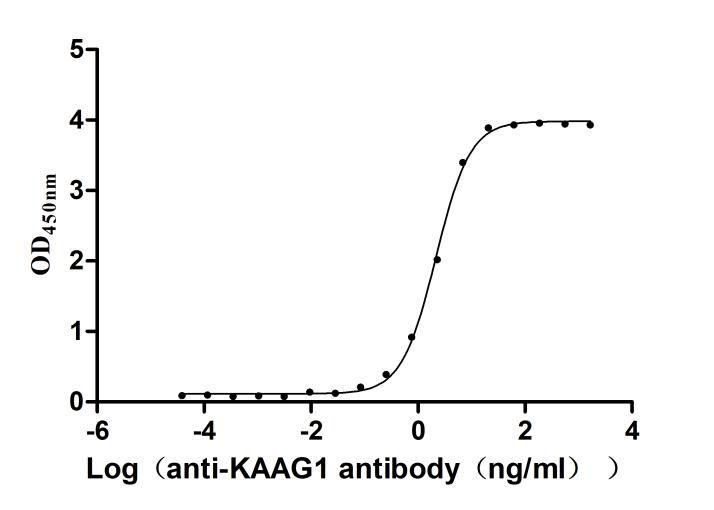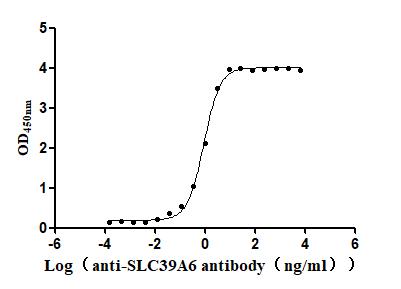Recombinant Rat Mitochondrial uncoupling protein 3 (Ucp3)
-
中文名称:大鼠Ucp3重组蛋白
-
货号:CSB-CF025556RA
-
规格:
-
来源:in vitro E.coli expression system
-
其他:
产品详情
-
基因名:Ucp3
-
Uniprot No.:
-
别名:Ucp3; Slc25a9; Mitochondrial uncoupling protein 3; UCP 3; Solute carrier family 25 member 9
-
种属:Rattus norvegicus (Rat)
-
蛋白长度:Full length protein
-
表达区域:1-308
-
氨基酸序列MVGLQPSEVPPTTVVKFLGAGTAACFADLLTFPLDTAKVRLQIQGENPGVQSVQYRGVLG TILTMVRTEGPRSPYSGLVAGLHRQMSFASIRIGLYDSVKQFYTPKGTDHSSVAIRILAG CTTGAMAVTCAQPTDVVKVRFQAMIRLGTGGERKYRGTMDAYRTIAREEGVRGLWKGTWP NITRNAIVNCAEMVTYDIIKEKLLDSHLFTDNFPCHFVSAFGAGFCATVVASPVDVVKTR YMNAPPGRYRSPLHCMLRMVAQEGPTAFYKGFMPSFLRLGSWNVMMFVTYEQLKRALMKV QVLRESPF
Note: The complete sequence including tag sequence, target protein sequence and linker sequence could be provided upon request. -
蛋白标签:N-terminal 10xHis-tagged
-
产品提供形式:Liquid or Lyophilized powder
Note: We will preferentially ship the format that we have in stock, however, if you have any special requirement for the format, please remark your requirement when placing the order, we will prepare according to your demand. -
缓冲液:Lyophilized from Tris/PBS-based buffer, 6% Trehalose, pH 8.0
-
储存条件:Store at -20°C/-80°C upon receipt, aliquoting is necessary for mutiple use. Avoid repeated freeze-thaw cycles.
-
保质期:The shelf life is related to many factors, storage state, buffer ingredients, storage temperature and the stability of the protein itself.
Generally, the shelf life of liquid form is 6 months at -20°C/-80°C. The shelf life of lyophilized form is 12 months at -20°C/-80°C. -
货期:Basically, we can dispatch the products out in 1-3 working days after receiving your orders. Delivery time may differ from different purchasing way or location, please kindly consult your local distributors for specific delivery time.Note: All of our proteins are default shipped with normal blue ice packs, if you request to ship with dry ice, please communicate with us in advance and extra fees will be charged.
-
注意事项:Repeated freezing and thawing is not recommended. Store working aliquots at 4°C for up to one week.
-
Datasheet & COA:Please contact us to get it.
相关产品
靶点详情
-
功能:UCP are mitochondrial transporter proteins that create proton leaks across the inner mitochondrial membrane, thus uncoupling oxidative phosphorylation. As a result, energy is dissipated in the form of heat. May play a role in the modulation of tissue respiratory control. Participates in thermogenesis and energy balance.
-
基因功能参考文献:
- Data suggest that UCP3 expression, energy metabolism, and uptake/beta-oxidation of free fatty acids in skeletal muscle can be regulated by dietary components; here, ursolic acid, a dietary triterpenoid, has anti-obesity effects. PMID: 25944715
- Based on Ucp3 content, a decrease in oxidative capacity and proton leak in intermyofibrillar and subsarcolemmal mitochondria could induce a decline in energy expenditure and thus contribute to the reduced resting metabolic rate found in old rats. PMID: 24950599
- Endurance training blocked the high-sugar diet induced up-regulation of UCP1 expression in interscapular brown adipose tissue, whereas it up-regulated the expression of Ucp3 mRNA in muscle. PMID: 23084644
- Examined the effect of D-Asp uptake on the expression of the mitochondrial uncoupling protein-3 (UCP3), beta-actin, and alpha-tubulin in rat Harderian gland. PMID: 21524945
- High fat diets increase the expression of fatty acid oxidation enzymes such as UCP3,PDK4, and MCAD concomitant with elevated plasma fatty acid levels and the induction of PGC-1 beta, but independent of changes in AMPK, p38, and PKA signaling. PMID: 21084676
- These findings indicate that changes in Intramyocellular lipids content but not UCP3 content are implicated in short-term effects of cafeteria-style diet and exercise training on muscular insulin sensitivity in rats. PMID: 20428795
- In the mouse C2C12 myoblast cell line, UCP3 has a short half-life of 0.5-4 h. Its turnover is proteasome dependent. PMID: 19954423
- Superoxide activates mitochondrial uncoupling proteins PMID: 11780125
- After 1 week cold exposure the protein level of UCP3 decreased, contrary to its own mRNA level in rat brown adipose tissue. PMID: 12023047
- SREBP-1c mimics the effect of insulin on UCP3 gene expression PMID: 12031958
- increased availability of NEFA resulted in an increase in gene expression in both skeletal and heart muscle PMID: 12037655
- energy metabolism and expression of uncoupling protein 3 in brown adipose tissue after 21 days of recovery from intracerebroventricular mouse leptin in rats PMID: 12062312
- Close association between fasting-induced changes in UCP2 and UCP3 gene expression with those of key regulators of lipid oxidation and hence consistent with hypothesis that these UCP homologs may be involved in lipid metabolism. PMID: 12397391
- Both mitochondrial populations in skeletal muscle cells from rats with increased thermogenesis display an increased fatty acid-induced uncoupling and UCP3 content, which could contribute to avoiding obesity. PMID: 12466947
- Effects of dietary protein content on uncoupling proteins (UCP) 1, 2 and 3 expression in various tissues of Zucker lean and obese rats were studied; A possible thermogenic function of UCP3 in muscle and white adipose tissue of obese rats was noted PMID: 12603007
- Upregulation of mitochondrial uncoupling protein 3 in the developing rat heart correlates with changes in mitochondrial membrane potential. PMID: 12676547
- The role of Ucp3 in lipid metabolism in fasting rats treated with triiodothyronine. PMID: 12692085
- sepsis upregulates the gene and protein expression of UCP3 in skeletal muscle, which may at least in part be mediated by glucocorticoidss and free fatty acids. PMID: 12721157
- The correlation of abdominal muscle UCP3 expression with overweight in males could be related to their relative resistance to gain weight after chronic overeating, by the purported role of UCP3 in the regulation of lipid utilization. PMID: 12750152
- UCP3 is a mediator of adaptive thermogenesis pertaining to weight regulation PMID: 12782304
- After activation of AMPK, UCP-3 expression in fast twitch tibialis anterior muscle at mRNA level was elevated and corresponded to increase in UCP-3 protein. PMID: 12813156
- UCP3 has a role in rat heart in metabolic gene switching but not in mitochondrial respiratory coupling PMID: 14733944
- T(3) treatment increased the mRNA levels of both uncoupling protein 2 (UCP2) and UCP3, but the protein level only of UCP3 in harderian gland PMID: 15064282
- UCP3 is present in mitochondria isolated from thymus and from reticulocytes, monocytes and lymphocytes of spleen. UCP 3 abundance is augmented in mitochondria isolated from thymus and mitochondria isolated from lymphocytes of the spleen from fasted rats PMID: 15262223
- During exposure to chronic low-frequency stimulation, muacle mitochondria were generated with a lower complement of UCP-3. PMID: 15308491
- UCP3 mRNA of the plantaris muscles during the period post exercise was significantly greater than that from control. PMID: 15346231
- In healthy rats, a single dose of thiazolidinedionesrapidly increases UCP-3 mRNA in skeletal muscle and plasma. PMID: 15349725
- Mitochondrial UCPs (UCP2, UCP3, UCP4) may play both a protective role against oxidative damage and a thermal signaling role in the eighth nerve. PMID: 15464300
- UCP3 activity is stimulated by triiodothyronine in vivo by affecting the complex network of biochemical pathways underlying the UCP3 activation. PMID: 15757654
- Muscle UCP3 protein content increased with long-term caloric restriction, consistent with a role in protection from ROS but inconsistent with the observed decrease or no change in proton leak PMID: 15886224
- Ucp2 and Ucp3 function in concert to augment tolerance to cardiac ischemia. PMID: 16079144
- UCP3 attenuates endogenous radical production by the mitochondrial electron transport chain at high protonmotive force. PMID: 16084485
- could play an important role modulating the dopaminergic and noradrenergic neurotransmission within discrete brain regions. PMID: 16387447
- Results are consistent with a role for UCP3 in preventing accumulation of triglyceride in both adipose tissue and muscle. PMID: 16434555
- Fenofibrate programs a gene-expression pattern able to modulate lipid handling and UCP3 activation. PMID: 16595124
- T(3)-induced early UCP3 expression depended on fatty acid-PPAR signaling because depleting serum fatty acid levels abolished its expression PMID: 17478558
- Induction of Ucp3 suppresses mitochondrial oxidant emission during fatty acid-supported respiration. PMID: 17761668
- Benidipine up-regulates not only UCP1 gene expression in BAT but also UCP3 gene expression in BAT and gastrocnemius muscle, which may contribute to thermogenesis in rats. PMID: 17878603
- SIRT1 acts as a major repressor of ucp3 gene expression in response to glucocorticoids. PMID: 17884810
- data demonstrate that the exercise-induced adaptations of UCP3 protein levels are muscle specific in obese animals compared with lean animals. PMID: 18685530
- UCP-2 is the only isoform detectable in the kidney and UCP-2 protein can be detected in proximal tubular cells and cells of the medullary thick ascending loop of Henle PMID: 19227473
- It is concluded that UCP2 and UCP3 are implicated in the age-depended heart dysfunction and development of the pathological mechanisms during ischemia-reperfusion. PMID: 19526854
显示更多
收起更多
-
亚细胞定位:Mitochondrion inner membrane; Multi-pass membrane protein.
-
蛋白家族:Mitochondrial carrier (TC 2.A.29) family
-
数据库链接:
KEGG: rno:25708
STRING: 10116.ENSRNOP00000024005
UniGene: Rn.9902
Most popular with customers
-
Recombinant Human CD226 antigen (CD226), partial (Active)
Express system: Mammalian cell
Species: Homo sapiens (Human)
-
Recombinant Human Tumor necrosis factor ligand superfamily member 9 (TNFSF9), partial (Active)
Express system: Mammalian cell
Species: Homo sapiens (Human)
-
Recombinant Human Interleukin-17A (IL17A) (T26A) (Active)
Express system: Baculovirus
Species: Homo sapiens (Human)
-
Recombinant Human Carcinoembryonic antigen-related cell adhesion molecule 6 (CEACAM6) (Active)
Express system: Mammalian cell
Species: Homo sapiens (Human)
-
Recombinant Human Cytotoxic and regulatory T-cell molecule (CRTAM), partial (Active)
Express system: Mammalian cell
Species: Homo sapiens (Human)
-
Recombinant Human Myosin regulatory light chain 12A (MYL12A) (Active)
Express system: E.coli
Species: Homo sapiens (Human)
-
Recombinant Human Kidney-associated antigen 1(KAAG1) (Active)
Express system: E.coli
Species: Homo sapiens (Human)
-
Recombinant Macaca fascicularis Zinc transporter ZIP6 isoform X1(SLC39A6),partial (Active)
Express system: Baculovirus
Species: Macaca fascicularis (Crab-eating macaque) (Cynomolgus monkey)


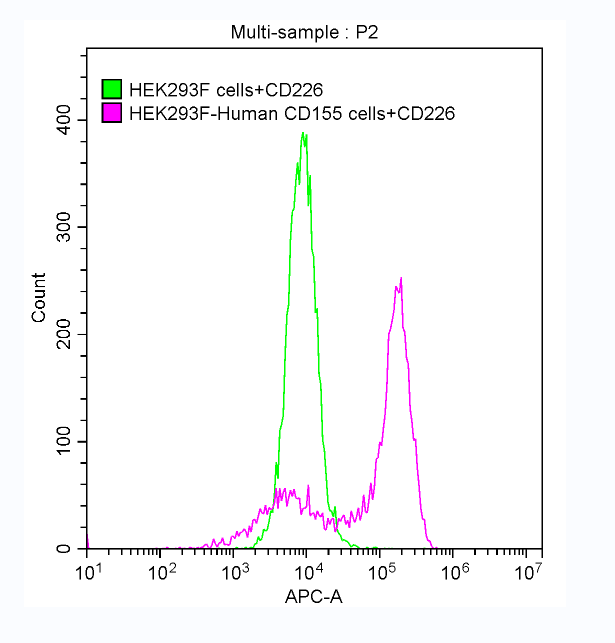
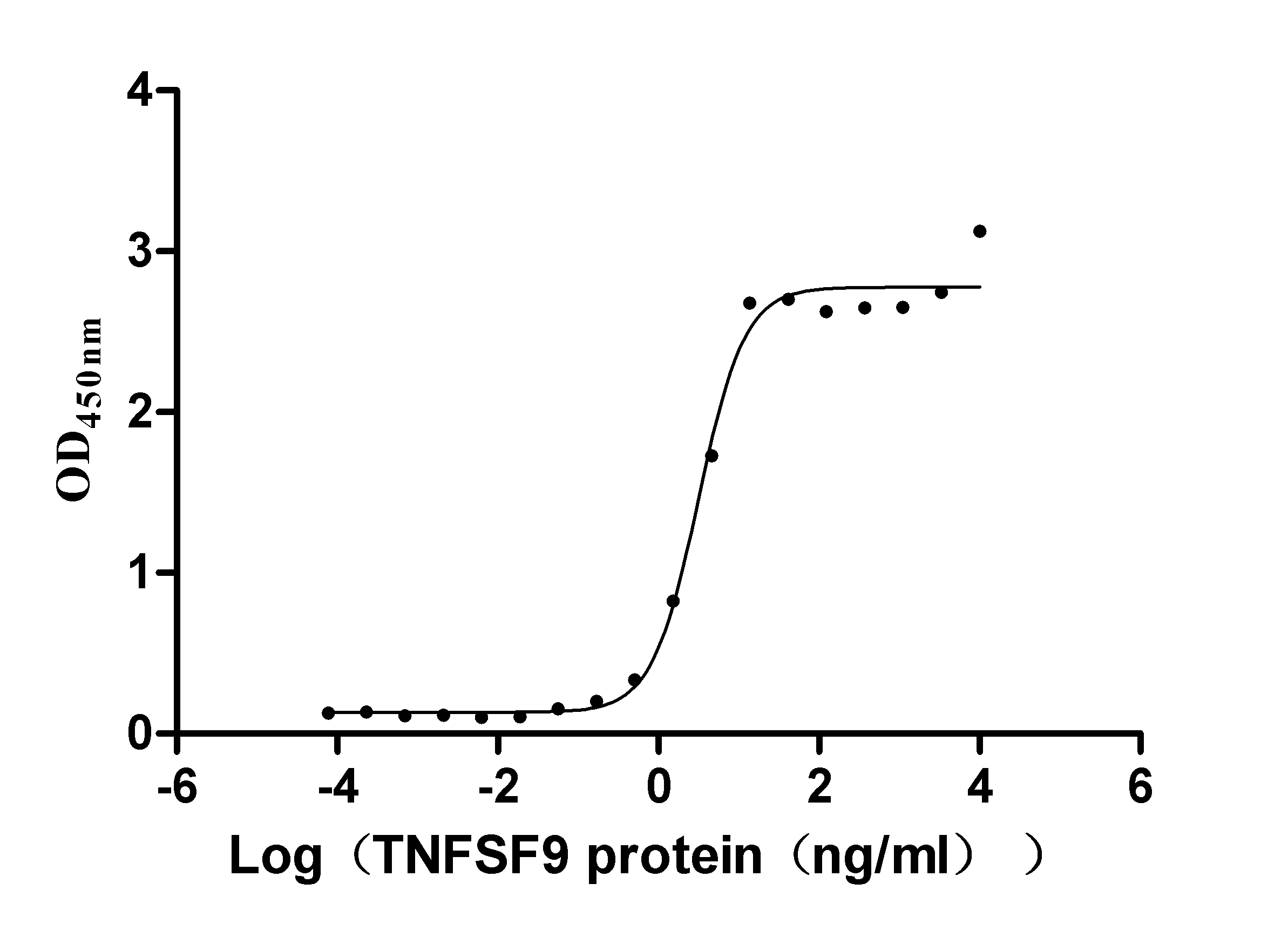
-AC1.jpg)
